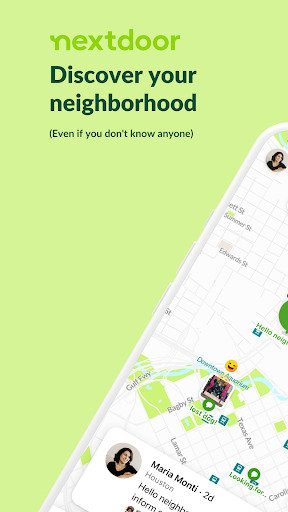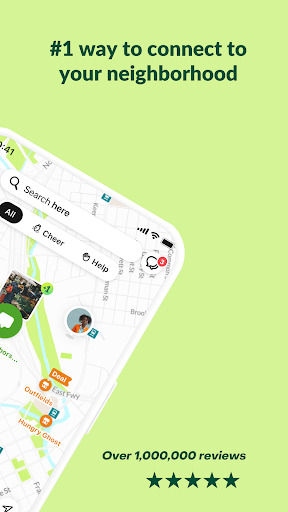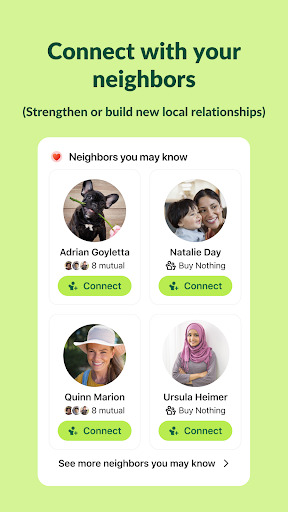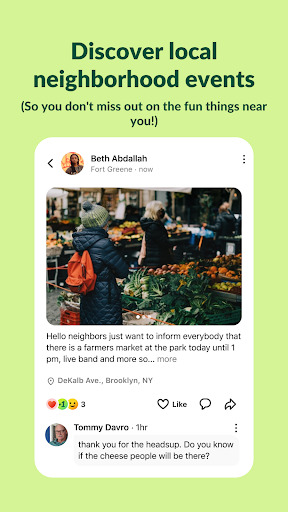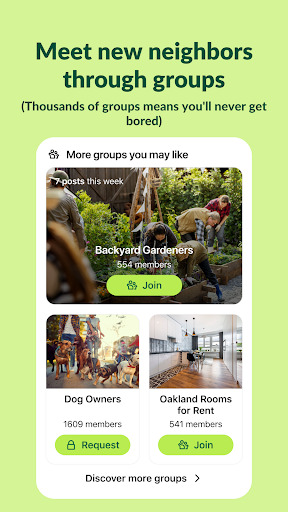Popular Now
Introduction
Nextdoor is a social networking platform designed to connect people within their neighborhoods. This review explores its features, benefits, and effectiveness.What is Nextdoor?
Nextdoor connects residents within local neighborhoods, allowing them to discuss local issues, share recommendations, and stay informed about events. It operates on a hyper-local model to enhance community interaction.Key Features
Important features of Nextdoor include:- Neighborhood Posts
- Recommendations
- Events
- Safety Updates
Setting Up and Using Nextdoor
To start using Nextdoor, create an account, verify your address, and join your local neighborhood. The platform’s user-friendly interface facilitates easy navigation and community engagement.Pros
Nextdoor offers:- Local Focus
- Community Building
- Reliable Recommendations
- Safety Alerts
Cons
Potential drawbacks include:- Privacy Concerns
- Moderation Issues
- Limited Reach
Comparing Nextdoor to Other Platforms
Nextdoor focuses on local interactions, unlike broader platforms like Facebook or Twitter. It is more targeted for neighborhood-specific communication and safety updates.Nextdoor for Businesses
Businesses can use Nextdoor for local advertising and gaining customer recommendations, leveraging its community-focused features to attract local clientele.Privacy and Security
Nextdoor requires address verification and offers privacy settings to manage who can view posts and personal information, though users should be cautious about sharing sensitive details.Future Trends
Future developments for Nextdoor may include enhanced community management features, better integration with local services, and improved moderation tools.Conclusion
Nextdoor enhances local community engagement through its neighborhood-focused features. Despite some privacy concerns, it remains a valuable tool for fostering local interactions and supporting businesses.-
Developer
Nextdoor.com
-
Category
Lifestyle
-
Version
4.63.3
-
Downloads
10M
Pros
👍 1. Local Community Connection: Nextdoor allows users to connect with their neighbors and local community members. This can be extremely beneficial for things like borrowing or lending items, finding trustworthy service providers, or simply getting recommendations for local businesses. It creates a sense of unity and fosters a strong bond within the neighborhood.
👍 2. Safety and Security: Nextdoor provides a platform for neighbors to share information and report any suspicious or criminal activities happening in the area. This enhances the overall safety and security of the neighborhood by quickly alerting others of potential threats and allowing for prompt action to be taken.
👍 3. Communication and Information Sharing: Nextdoor serves as an effective communication tool for sharing important community-wide information such as events, meetings, garage sales, or other local happenings. It also serves as a platform for discussions on various topics, fostering a sense of involvement and engagement within the neighborhood.
Cons
👎 1. Limited coverage: Nextdoor’s coverage can be limited to certain neighborhoods or areas, which can restrict access for users outside of those specific locations. This can be a significant shortcoming for individuals who live in smaller or more remote areas where Nextdoor may not be available.
👎 2. Lack of privacy control: Although Nextdoor allows users to create private groups, it still requires users to provide personal information, including their address, to verify their residency within a particular neighborhood. This can raise privacy concerns for individuals who may not feel comfortable sharing or verifying such information online.
👎 3. Potential for negativity and conflicts: While Nextdoor aims to foster a sense of community and connection, there is also potential for negative interactions and conflicts among users. Issues such as disputes, disagreements, and even online harassment can arise, which can impact the overall user experience and the community atmosphere that Nextdoor intends to promote.
